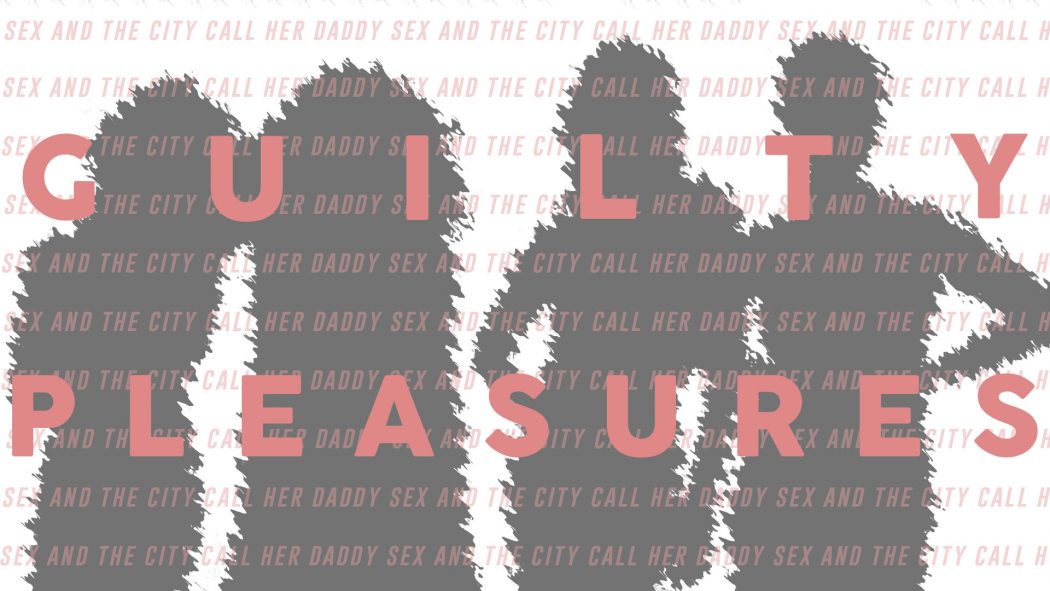Everyone has guilty pleasures. Whether it’s the Spice Girls or Top Gun, you enjoy it, but you also have this sinking feeling that you can do better. Sometimes, you have a feeling that you should do better, that for whatever reason you should be a more responsible consumer who rises above popular appeal (yes, I am looking at you, Kanye fans). When I came across Sex and the City on Crave earlier this year, I wanted so much to believe that I was better than it, that I could be above this classic chick-flick style TV show which clearly perpetuated the age-old female imperative to find a husband above all else. I was wrong. Half-way through the first episode, I was completely obsessed. Carrie Bradshaw and her friends were glamourous, funny, successful, independent, and absurdly well-dressed; all characteristics that I admire. As an 18-year-old university student, I could not help but look at the fictional lives of these women and desperately desire it for myself.
Twenty years after the debut of SATC, its legacy continues, and can be seen in the current, wildly popular podcast Call Her Daddy hosted by twenty-somethings Alexandra Cooper and Sofia Franklyn. Call Her Daddy has similar discussions about sex, romance, and life as a woman in New York City, but the girls of Call Her Daddy ramp it up to 100. Call Her Daddy is shameless, honest, explicit, and most importantly, hilarious. Host Alexandra Cooper described Call Her Daddy as being “a women’s locker-room conversation” to the New York Post. In a period that is becoming more aware of the necessity for an open sexual discourse, this “locker-room conversation” is increasingly relevant and valuable. Recent topics include how to f— k your professor, bondage (with an HDMI cord), uncircumcised penises, and the time Franklyn flashed her vagina at her boyfriend’s entire family while dancing on top of a bar in Mexico. Call Her Daddy is not for the faint of heart, but if you give it 10 minutes you’ll be laughing out loud.
When I came across Sex and the City on Crave earlier this year, I wanted so much to believe that I was better than it.
Sex and the City and Call Her Daddy both tap into the special appeal that a chat between female friends has. For many women after a night out, a date, or any exciting experience, recounting all the thrilling, romantic, salacious, and entertaining details of the event to their friends is second in fun only to the experience itself. SATC and Call Her Daddy provide a substitute for real conversations between women, allowing their audience to live through the fictional or just provocative lives of the characters and hosts.
Despite its broad appeal, SATC in our current socio-political climate is rife with politically murky and questionable moments. Viewers have started to notice that SATC is entirely focused on the experiences of four, rich, white women and that any character lying outside of that type seems to portray fairly offensive stereotypes. It is particularly hard to forget one memorable episode in which Samantha describes her neighbourhood as being “trendy by day, and tranny by night” due to the presence of transgender sex workers who operate outside of her apartment.
Call Her Daddy also runs into its fair share of controversial claims and topics, and this remains true even if one puts aside their sensibilities for profanity. During an episode that aired in October 2018, titled “If you’re a 5 or 6, Die for that D*ck,” Cooper and Franklyn gave advice on how less attractive girls should work overtime in the bedroom, in order to please men and keep their attention. Being the feminist that I am, that kind of advice does not sit right with me.
Both SATC and Call Her Daddy exist in a postfeminist movement in which sexual liberation is often equated to female empowerment.
Both SATC and Call Her Daddy exist in a postfeminist movement in which sexual liberation is often equated to female empowerment. Due to the privileged lives of the women of SATC and Call Her Daddy, these works only latch onto one component of a broader feminist movement and continue to disregard and perpetuate damaging patriarchal norms that women continue to face. While these shows are given the feminist label because of their enthusiasm about sexual freedom, I believe that they are both far from feminist works.
SATC and Call her Daddy are enjoyable because they are deeply relatable. When they discuss their experiences as women, the good, the bad, and the ugly, their audience, primarily white, middle class women, can connect with them. And yet, it is not just the positive aspects of these productions that audiences relate to.
In the episode “Twenty-Something Girls vs. Thirty-Something Women” you nod along as Carrie and her friends belittle and compete with younger girls who they view as a threat, and in an episode of Call Her Daddy called “Professional Athletes” the hosts talk about how it is stupid for a guy to try and make their girlfriend jealous because she will be jealous the minute she sees a pretty girl walk into the room. In both cases, the audience laughs because, honestly, it’s understandable. Women are thought of as being programmed to view other women as their competition when it comes to finding a partner, and there is something wrong with that.
SATC and Call Her Daddy need to be enjoyed critically and taken with a grain of salt.
In an episode on college life, Call Her Daddy gave its female listeners the advice to know where they sit on their school’s scale of attractiveness, and to act accordingly. Shouldn’t we as women try to actively support other women, rather than hit them with insults justified by prefaces like, “this is gonna hurt feelings, this is gonna rub people the wrong way – but it’s the f—ing truth?” We laugh because it is true, but should we at least be trying to hold ourselves to a higher standard, or even better, not laugh at the world how it is, but strive to improve it a little?
Guilty pleasures are largely innocent, and I do not believe that there is anything wrong with enjoying SATC or Call Her Daddy; I clearly enjoy them immensely, but some criticism is warranted. These productions offer anecdotes and advice on how to live as a woman in two different historical moments, but they both focus on how to live within the structures and expectations of society. SATC and Call Her Daddy need to be enjoyed critically and taken with a grain of salt. The legacy of SATC is easily identifiable, as are the controversies that arise as a modern viewer. Will similar issues arise in the future of Call Her Daddy? And so, I advise you to not watch Sex and the City or listen to Call Her Daddy for revolutionary advice on how to live and exist as a woman, but to do so if you need some comic relief or some arguably healthy girl talk.









Such a well-written article